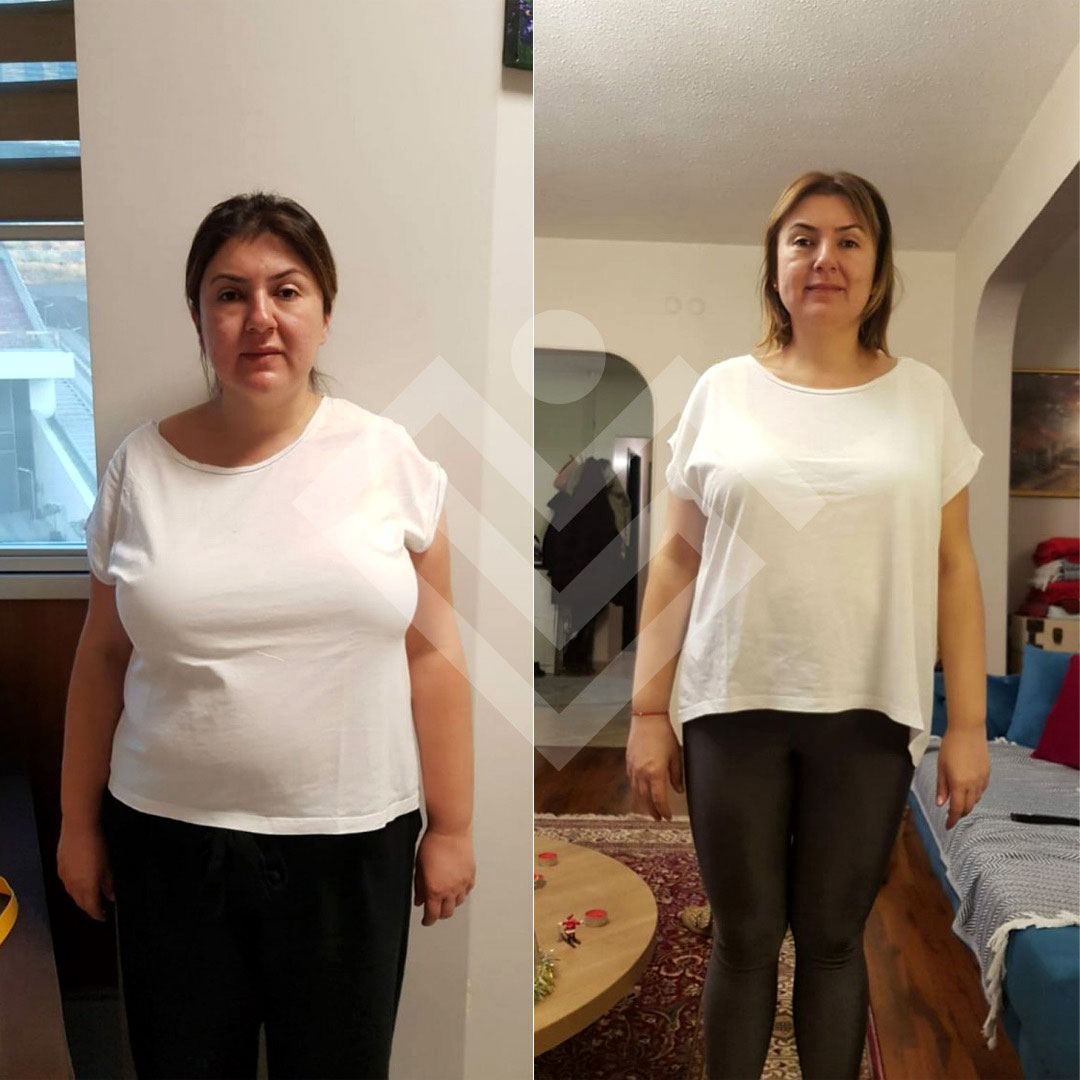Understanding Gastric Sleeve Surgery: A Path to Weight Loss
Obesity is a global health crisis with numerous health risks including diabetes, high blood pressure, heart disease, and even some cancers. For individuals struggling with severe obesity and related health issues, bariatric surgery has emerged as a powerful tool when traditional weight loss methods have failed. Among the most popular and effective surgical options is gastric sleeve surgery, a procedure that offers a chance to significantly reduce weight and improve health.

The Benefits of Gastric Sleeve Surgery for Weight Loss
In the field of bariatric surgery, there are several procedures that can result in significant weight loss and improved health for patients struggling with obesity. Among these, laparoscopic sleeve gastrectomy, commonly known as gastric sleeve surgery, has gained prominence due to its distinct advantages over other weight loss surgeries. This procedure not only assists in effective weight loss but also maintains the fundamental functionality of the stomach, which can lead to fewer complications and a more straightforward recovery.
Minimally Invasive Approach
One of the primary benefits of gastric sleeve surgery is its minimally invasive nature. Performed laparoscopically, it involves making small incisions as opposed to one large incision. This approach offers several advantages:
Faster Recovery: Patients can often return to their daily activities more quickly than with traditional open surgery.
Reduced Pain Post-Operation: Smaller incisions typically result in less postoperative pain, making the recovery process more comfortable for the patient.
Lower Infection Risk: With smaller wounds, the risk of post-surgical infections diminishes significantly.
Shorter Hospital Stay: Many patients can leave the hospital sooner after laparoscopic surgery compared to traditional surgery.
Minimal Scarring: The smaller incisions lead to less scarring, which is cosmetically preferable for many patients.

Effective Weight Loss
Gastric sleeve surgery has been proven to be an effective long-term solution for weight loss. On average, patients may lose between 40% to 70% of their excess body weight within one year after surgery. This significant weight loss can be attributed to the reduced size of the stomach, which limits food intake and reduces the feeling of hunger.
How is Gastric Sleeve Surgery Performed?
The surgery is usually performed using a minimally invasive approach known as laparoscopy. During the procedure, the surgeon makes a few small incisions in the upper abdomen and inserts surgical instruments, including a camera. The camera sends images to a monitor, which the surgeon uses to guide the procedure. The large portion of the stomach is then surgically removed and the remaining edges are joined together to form the sleeve or tube.
What Happens After Surgery?
After gastric sleeve surgery, the smaller stomach size makes you feel full much quicker than before. It significantly reduces the amount of food that can be consumed at one time, thus creating a calorie deficit which is necessary for weight loss. Moreover, the surgery also affects gut hormones that impact hunger, satiety, and blood sugar control. Short-term studies show that sleeve gastrectomy is as effective as gastric bypass surgery in terms of weight loss and improvement or remission of diabetes.
Weight Loss Expectations
Weight loss after gastric sleeve surgery can be quite dramatic. Most patients lose weight quickly and continue to do so for 18 to 24 months after the procedure. On average, people lose 60% of their excess weight after gastric sleeve surgery. However, it is important to note that surgery is just a part of the journey. To ensure lasting results, patients must commit to a healthy lifestyle, including a balanced diet and regular physical activity.
Gastric sleeve surgery is more than just a surgical procedure; it’s a commitment to a new lifestyle. It offers hope for those who have struggled with severe obesity and the health conditions that often accompany it. By reducing stomach size and altering hormones related to hunger and satiety, the surgery facilitates weight loss and can lead to improved overall health. However, it requires a considerable dedication to maintaining healthy eating habits and regular exercise. With the right support and commitment, gastric sleeve surgery can be a life-changing step toward a healthier, more active life.
Understanding Gastric Sleeve Surgery: Paving the Way to Weight Loss
In the face of the global obesity crisis, where health risks loom large, gastric sleeve surgery emerges as a potent tool. Especially beneficial for severe obesity and associated health issues, this bariatric procedure offers a compelling opportunity for significant weight reduction and improved overall health.
Minimally Invasive Approach: A Gateway to Swift Recovery
A key advantage of gastric sleeve surgery lies in its minimally invasive nature. Conducted laparoscopically through small incisions, this approach offers several benefits:
- Faster Recovery: Patients can swiftly resume daily activities compared to traditional open surgery.
- Reduced Postoperative Pain: Smaller incisions contribute to less discomfort during recovery.
- Lower Infection Risk: Smaller wounds translate to a significantly reduced risk of post-surgical infections.
- Shorter Hospital Stay: Many patients can be discharged sooner after laparoscopic surgery.
- Minimal Scarring: Smaller incisions result in cosmetically preferable minimal scarring.
Effective Weight Loss: Transformative and Sustainable
Proven as a long-term weight loss solution, gastric sleeve surgery facilitates an average loss of 40% to 70% of excess body weight within a year post-surgery. The reduction in stomach size limits food intake, curbing hunger and promoting sustained weight loss.
Benefits of Gastric Sleeve Surgery for Weight Loss
Within the realm of bariatric surgery, the laparoscopic sleeve gastrectomy, commonly known as gastric sleeve surgery, stands out for its distinct advantages. This procedure not only ensures effective weight loss but also preserves fundamental stomach functionality, resulting in fewer complications and a smoother recovery process.
Procedure Insights: How Gastric Sleeve Surgery is Conducted
Typically performed through laparoscopy, gastric sleeve surgery involves small incisions in the upper abdomen. Surgical instruments, including a camera, guide the removal of a large portion of the stomach, forming the sleeve or tube from the remaining edges.
Post-Surgery Transformations: From Fullness to Hormonal Impact
Post-surgery, the smaller stomach size induces a quicker feeling of fullness, limiting food consumption and creating a necessary calorie deficit for weight loss. Additionally, the surgery influences gut hormones, affecting hunger, satiety, and blood sugar control.
Weight Loss Expectations: A Journey Beyond Surgery
Gastric sleeve surgery initiates a dramatic weight loss trajectory, with most patients shedding weight consistently for 18 to 24 months. On average, individuals lose 60% of their excess weight. However, it’s crucial to recognize surgery as part of a broader journey. Sustainable results demand a commitment to a healthy lifestyle, incorporating a balanced diet and regular physical activity.
Commitment to a New Lifestyle
Gastric sleeve surgery transcends being a mere procedure; it marks a commitment to a new lifestyle. A beacon of hope for severe obesity and its accompanying health challenges, this surgery, by altering stomach size and related hormones, facilitates weight loss and enhances overall well-being. Yet, its success hinges on steadfast dedication to maintaining healthy habits and embracing regular exercise. With unwavering support and commitment, gastric sleeve surgery stands as a life-altering stride towards a healthier, more active life.











































